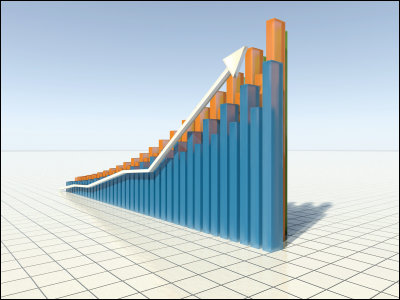What are the five lessons from historical events?

by
The Great Depression , which began in 1929, caused a severe recession triggered by a stock market crash, causing bankruptcy and high unemployment rates, etc., to afflict people all over the world. Economic columnist Morgan Hausle has compiled five lessons from such historical events as the Great Depression.
Five Lessons from History · Collaborative Fund
https://www.collaborativefund.com/blog/five-lessons-from-history/
The Great Depression began on October 24, 1929, when the stock market crashed. Certainly this was a big event, but at the time Americans held only 2.5% of the stock, according to Hausle. It was said that not many people had their stock scrapped or were damaged financially by the direct stock market crash. Certainly, although the stock market crash has given people anxiety, the World Depression has actually begun to threaten people's lives only about two years after the crash.
In 1929, 500 banks went bankrupt, but in 1931 2300 banks went bankrupt. Those who lost their deposits due to bankruptcy are put in trouble and try to cut down their spending as much as possible to overcome the difficulties, but this has pushed the economy into a slump and more banks have broken down, saying that it has entered a negative spiral Mr. says.
From this series, some may think that 'the lesson that can be obtained from the Great Depression is to prevent bank failures.' However, the difference between various market conditions and laws at that time and modern times, and because the general public can not take direct action not to crush the bank, this lesson is not so meaningful. 'The lessons learned from history are less relevant to the present as the content becomes more specific,' said Hauslele, and the lessons to be gained from past history are fundamental to human behavior and to oneself. It is a lesson that can be applied. He cites five lessons from historical cases such as the Great Depression.

by
◆ 1: People who suffer from unexpected difficulties turn their mindset into greater
According to Housele, it is worth noting that not only the economic collapse is interesting about the Great Depression, but also that people's thinking has changed significantly before and after the Great Depression. President Herbert Hoover won the overwhelming vote difference in 1928 before the Great Depression, but was defeated in 1932 after the Great Depression because he was largely disappointed by Franklin Roosevelt . In addition to prohibiting citizens from holding gold coins and bullion at the presidential decree, a policy was taken to actively intervene in the economy and increase public works.
Hausle cited Germany after the First World War as an example of how people's thinking has changed a lot due to difficulties, as in the United States. Germany was suffering from hyperinflation and so on with huge compensation from World War I. Under such circumstances, the National Socialist German Workers Party (Nazis), led by Adolph Hitler , came to power by democratic voting. Although the Nazis were involved in the massive atrocities of Jews, the German people at that time were witnessing that their lives were being restored by the Nazi policies, while they were suffering from inflation.
While this is an extreme case, Hausleur admits, but claims that the fact that people who are under intense stress accept choices that would normally not have been considered is historically correct. He said that it is necessary to keep in mind that the Great Depression such as the Great Depression has a strong influence not only on economic effects such as stock prices but also on people's thinking as a lesson.

by
◆ 2: The return to the average is caused by the owner of 'the power to grow' not having 'the power to maintain'
Resurrection to the average is the most common story historically, noted Hausle. We can see the phenomenon that people who once boasted of power that has penetrated everywhere, such as the economy, countries, companies, and individual careers, lose their power over time.
This seems to be particularly strong in imperialist countries, and countries that have continued their expansion policy under the slogan “Strengthen power by expanding the country” But I can not change my thinking. In addition, investors who have made a big bet in the world of investment and gained a profit are turning to maintain the status quo, saying, 'Let's make stable investments with local bonds etc. without taking any more risks.' Is difficult. It is said that 60% of the top rankings in the World Leader Number have been replaced in 10 years, and it is very difficult for a person who has made a major breakthrough at one time to maintain that status.
According to Housele, this is due to the fact that 'the skills to grow big' and 'the skills to maintain the status quo' are different things, such as Warren Buffett who has been one of the richest American riches for many years. That's an exception to grips. Mr. Haussle argues that big success itself tends to make people overconfident and 'do risk hedging carefully as it may possibly fail.'

by
◆ 3: Unsustainable events continue unexpectedly long
During the Vietnam War , Ho Chi Minh has stated that 'Enemy will kill us 10 people, but we can only kill one enemy. But it is the enemy that is exhausted first' . Simple calculations would make Ho Chi Minh's North Vietnamese army more and more underpowered, making it seem impossible to sustain the war, but the actual situation is not as simple as spreadsheet calculations. 'If you know things are unsustainable, you do not know when it actually stops,' says Hausle.
For example, in the United States, as of 2003, “home prices are too high. This is because prices are rising using low interest rate loans such as subprime loans . It is pointed out that it is possible. However, despite that, home prices in the United States will continue to rise over the next four years, eventually leading to the subprime mortgage crisis and the Lehman shock .
This phenomenon is related to 'thought for profit' and 'story to persuade people' about subprime loans. Banks, investors and salesmen who have created subprime loans can not loose their hands because they want to pursue profits while feeling that 'the real rise in home prices will not last for a long time,' was.
And the general people who want to get a profit from the resale of the house, 'Jim bought a second-hand home for $ 300,000 (about 33 million yen) and resell it when the price goes up and get a large profit' Believing in such a convenient story, he did not believe in the statistical fact that 'house prices are too high from the median income and will eventually decline.' Hausleul said the psychology of these people has pushed the economy to a situation where it has been visible to collapse.

by darksouls1
◆ 4: It is late for people to notice progress, but failure spreads at a stretch
The Wright brothers succeeded in the world's first manned powered flight in 1903, but the world has long recognized that this fact has not been recognized, nor even the fact that an airplane carrying a person flew in the sky About. The invention of the plane is definitely among the top five of the great inventions made in the twentieth century, but this groundbreaking invention has been demonstrated in front of newspapers and reporters who are skeptical about the invention for about four years Repeatedly, it seems that it was finally recognized in the world.
In addition, even after the invention of the plane was recognized, the public was skeptical about the usefulness of the plane, and in 1909 the Washington Post stated that 'commercial cargo aircraft would not be put to practical use' But in fact, the first commercial cargo aircraft flew five months later. In addition, the first widespread reference to Wright's plane was when Thomas Selfridge was the first person in the world to die in a plane crash, says Hausle. Similar to the Wright brothers' example, while the track of the firm's steady growth is hard to attract people's attention, corporate bankruptcy has become a hot topic at a stretch.
Other than that, the slow progress of medicine has greatly reduced the chance of dying from heart disease and cancer, and the steady growth of the market is not a big topic. On the other hand, medical mistakes and market declines tend to be a big topic, and Hausle says, 'It takes a long time for things to grow, but it is only a moment to lose things.'

by
◆ 5: Even if the wound heals, the scar remains
Many people died in the Eastern Front in World War II, and more than 4,000 villages were destroyed by 1945, but the Soviet Union has recovered the damage it had by 1960. Although the bones and bullets may be found by digging the ground of the land, which has become a battlefield, the total population of the Soviet Union has exceeded prewar levels in less than 10 years after the war. Among the defeated countries, Japan achieved remarkable recovery, and although it could produce only 1,000 kcal of food per capita in 1946, it became one of the world's leading economies in the world in 1960.
However, in a study comparing a group that experienced World War II with a group that did not do so with 20,000 people in 13 countries, the group that experienced World War II is more likely to be diabetic than the group that does not. Was 3% higher and 6% more likely to suffer from depression. We also know that there was little chance of getting married and that life satisfaction was low. In other words, even though it appears that the war scars have disappeared, Hausleu points out that the scars remain among those who have experienced the war era.
You can think of a large recession as well. We can expect that the recession will eventually settle down and the economy will eventually recover, but those who have experienced a recession have a sense of crisis somewhere in their mind that 'someday a major recession may occur' and have a more conservative idea It's easy. Although it is possible to restore buildings and the economy, it is difficult to restore the spirit of people as it was before the event, Hausleu said.

by geralt
Related Posts:
in Note, Posted by log1h_ik







